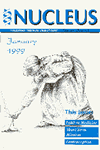Fudging the issues
The FPA literature states categorically, ‘emergency contraception works by preventing ovulation or implantation and is therefore not an abortifacient’ (emphasis theirs) and that emergency contraception ‘does not end an existing pregnancy’.[2] This is reinforced by the statement on the FPA’s leaflet that ‘Medical research... (is) quite clear that emergency contraception prevents pregnancy and is not abortion’.[3] These claims rest on the unfounded assumption that pregnancy begins not with fertilisation but with implantation. To be fair, the FPA leaflet does mention that ‘people who believe life begins when the egg is fertilised may not wish to use this method’,[4] but this message is lost in the small print of page seven of an eight page document. Are the FPA being economical with the truth?
A dilemma for Christians
The later morning after pills and IUCDs are used (and the FPA is advocating their use up to three days and five days after unprotected sex respectively), the more likely they are to be acting by preventing implantation which generally occurs on about the sixth day after fertilisation when the embryo is at the blastocyst stage.
The 1996 CMF Abortion Survey revealed that 20% of doctors and 50% of student members said that they would refuse to use methods of ‘contraception’ which might act by preventing implantation.[5] Given that there are about 1,000 students and 4,500 doctors in CMF this amounts to 1,400 members (500+900) who say they would refuse to use emergency contraception.
How to respond?
How should we respond? First, we can inform colleagues, patients and the medical press of the fact that post-coital contraception acts in most cases by causing an early abortion. Second, we need to decide how we will respond personally.
Many of us who believe that human life should be respected from the time of fertilisation[6] will not in all conscience be able to prescribe ‘post-coital contraception’. We cannot expect thatnon-Christian colleagues will have sympathy with this view, and it may mean that we will face discrimination in future job applications. This cost will need to be counted.
We also need to remind people that until 1983, the World Medical Association itself declared that doctors should ‘maintain the utmost respect for human life from the time of conception’.[7] It is not we who have changed our ethics!
































